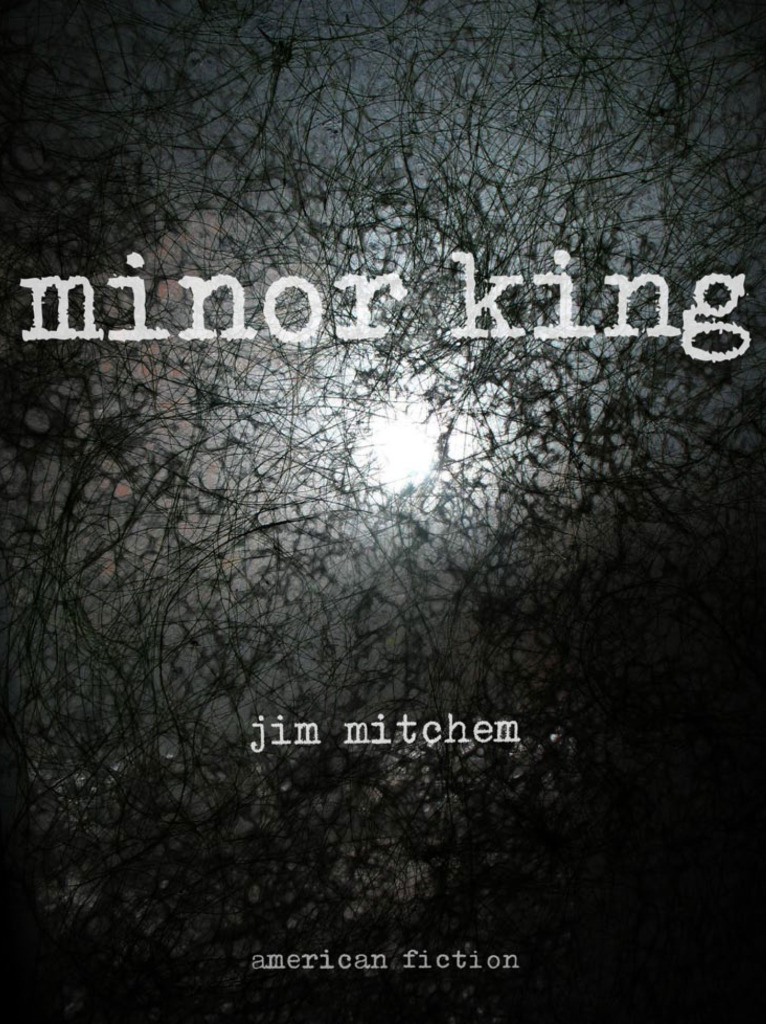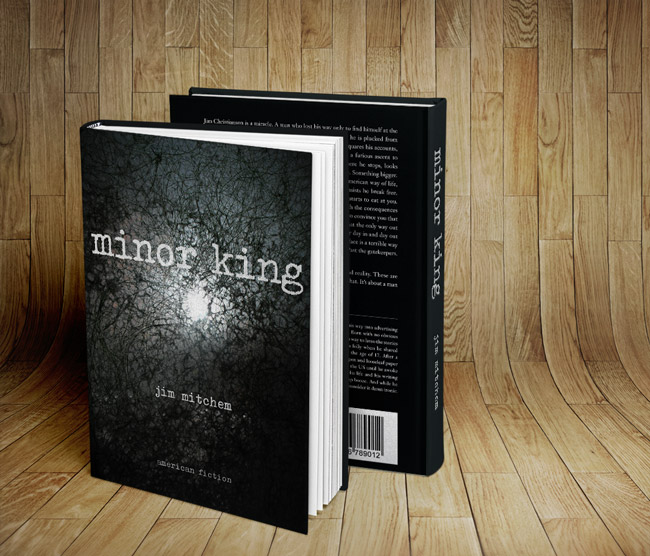The following is an excerpt from my upcoming book, Minor King. This is from Chapter 14, where the protagonist, Jim Christianson, is confronting his wife Tabitha who was released from her job at a law firm the day before.
***
In all the years I’d known her, I’d never heard her say one “off” remark about life in the system. It took her getting canned by an arrogant man who maintained a position of power because of money. I wanted to tell her about my plan to free us from the oppressive grip of the American Machine, but didn’t. I knew she’d strike it down.
It was too risky. Too non-traditional for her.
Tabitha was the kind of person who accepted that there were certain ways to do things. With very clear rules. She knew of my frustration with the way things worked, but her acceptance had always been something like a counterbalance. She always kept a firm grip of the rudder.
“It really does seem pointless, sometimes,” I said. “I’ve been saying this for years. I don’t know how people in this country go their whole lives thinking that they’re living life to the fullest when they’re really just making ends meet. With zero chance of ever getting to a point where they don’t have to sell their time to a system that drinks their blood.”
“Drinks their blood? You and your metaphors.”
“But it’s true. Think about it. My parents. Your parents. Their parents before them. What did any of them take away from a life of hard work and dedication to the system? Was anyone who came after them ever any better for their contributions?”
“Well, they were good people. They raised good humans. They did their best to give their families a chance to keep going,” she said.
“So the American Dream is what? To survive?” I interjected.
“Well maybe that’s all we’re supposed to do? Did you ever think of that?” she asked, not believing it herself.
“Yes. And I reject that thinking.”
She walked over, placed her hands on my face and looked me square in the eyes. “I know you’re frustrated with how things are, Jim. I do. And I get it. I’m frustrated too. But the cold, hard truth is that we are not wealthy people. We don’t come from money. We will never have it.”
She walked across the bathroom and grabbed a toilet brush. Metaphors indeed.
“We will have to work as hard as we can for as long as we can. If we’re lucky, maybe we can help pay for the kids’ college. If we’re really lucky, we can maybe retire before we’re ninety. I think that the sooner you accept this, the happier you’ll be. And then you can stop walking around with that thing in your chest.”
Except, that thing in my chest had nothing to do with with the American Dream or the inequities of the class struggle.
“Besides, we’re very lucky to live in America. We could be in Mexico. Or Syria. Or any number of places where they don’t have the opportunity to live free, go to the movies, or even vote.” she said, knowing that I considered the American political system an exercise in futility.
“This is the part of the conversation where I give up,” I said. “You just confessed that you are frustrated, but in the same breath said you were grateful.”
“I’m a woman.”
“An unemployed woman, because you’re a victim of a system that doesn’t care about you beyond what you can contribute to it. Is this the kind of future you want to leave to your daughters? Maybe we should just start them on some collagen for their lips, and buy milk laced with hormones so that their breasts grow to the right size in the hopes that rich men will sweep them off their feet and they can avoid having to deal with a system that drives everyone to their graves,” I said.
I walked over and took the toilet brush from her hands. “What if things could be different? What if we didn’t have to remain stuck in the same pattern that our parents and their parents before them were stuck in?” I asked.
“But they…”
“Don’t rationalize. Just answer. What if things could be different? What if there was enough money for us to get out of all of this? Maybe forever. Would you be okay with that?”
“If things could be different, I’d totally be okay with that,” she said. “As long as no one was breaking the law.”
I kissed her.
“That’s it?” she asked.
“What do you mean?”
“That’s it? No plan, just a hypothetical?” she asked.
“For now, all I need to know is that you’re not opposed to the idea,” I said.
“Opposed to it? Who would be opposed to prosperity? Isn’t that what we’re all striving for anyway?”
“That’s exactly what we’re striving for. We’re all chasing this big, juicy carrot that is always just out of reach,” I said. “And yet maybe, just maybe, there’s a way to grab it.”

***
Jim Mitchem
